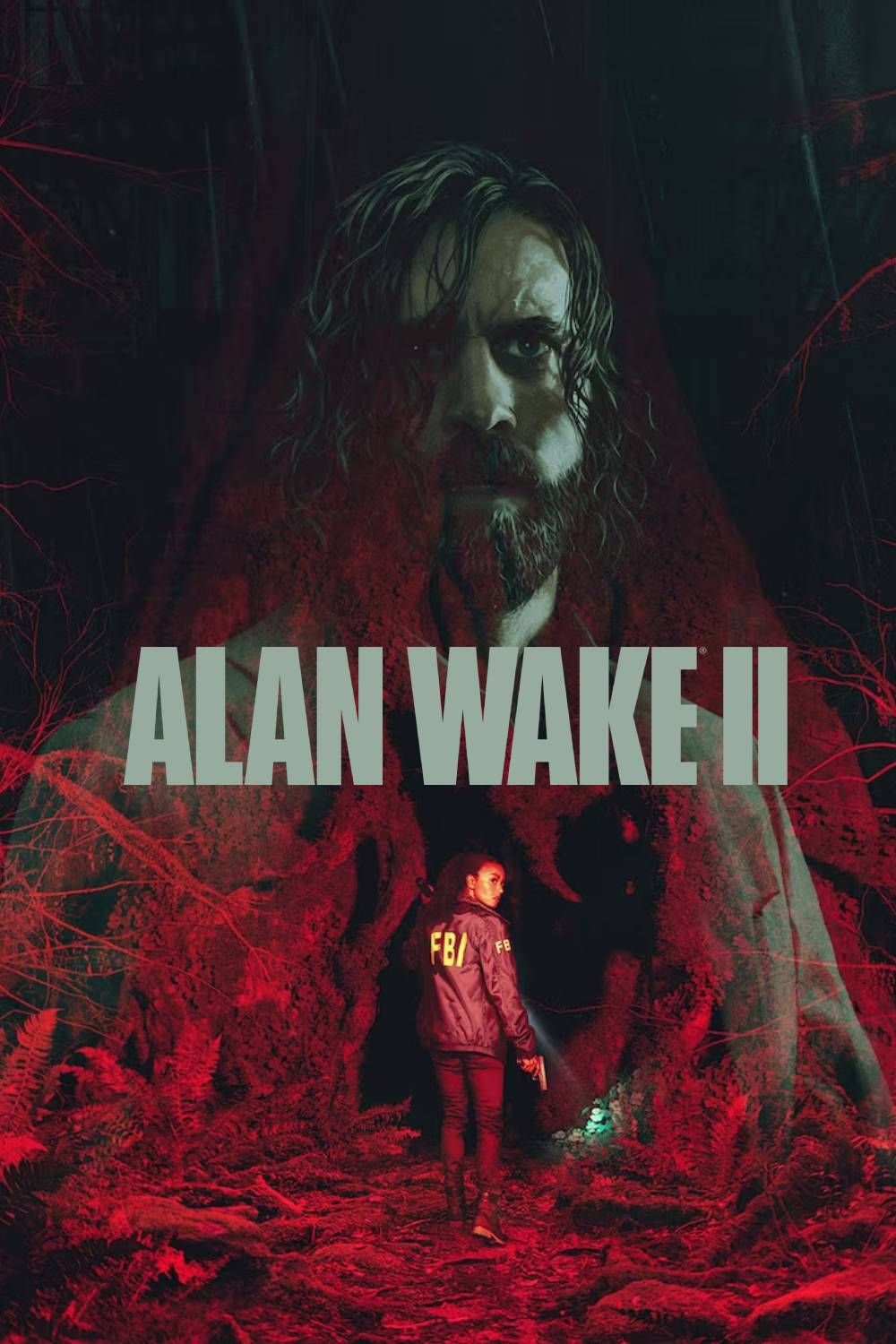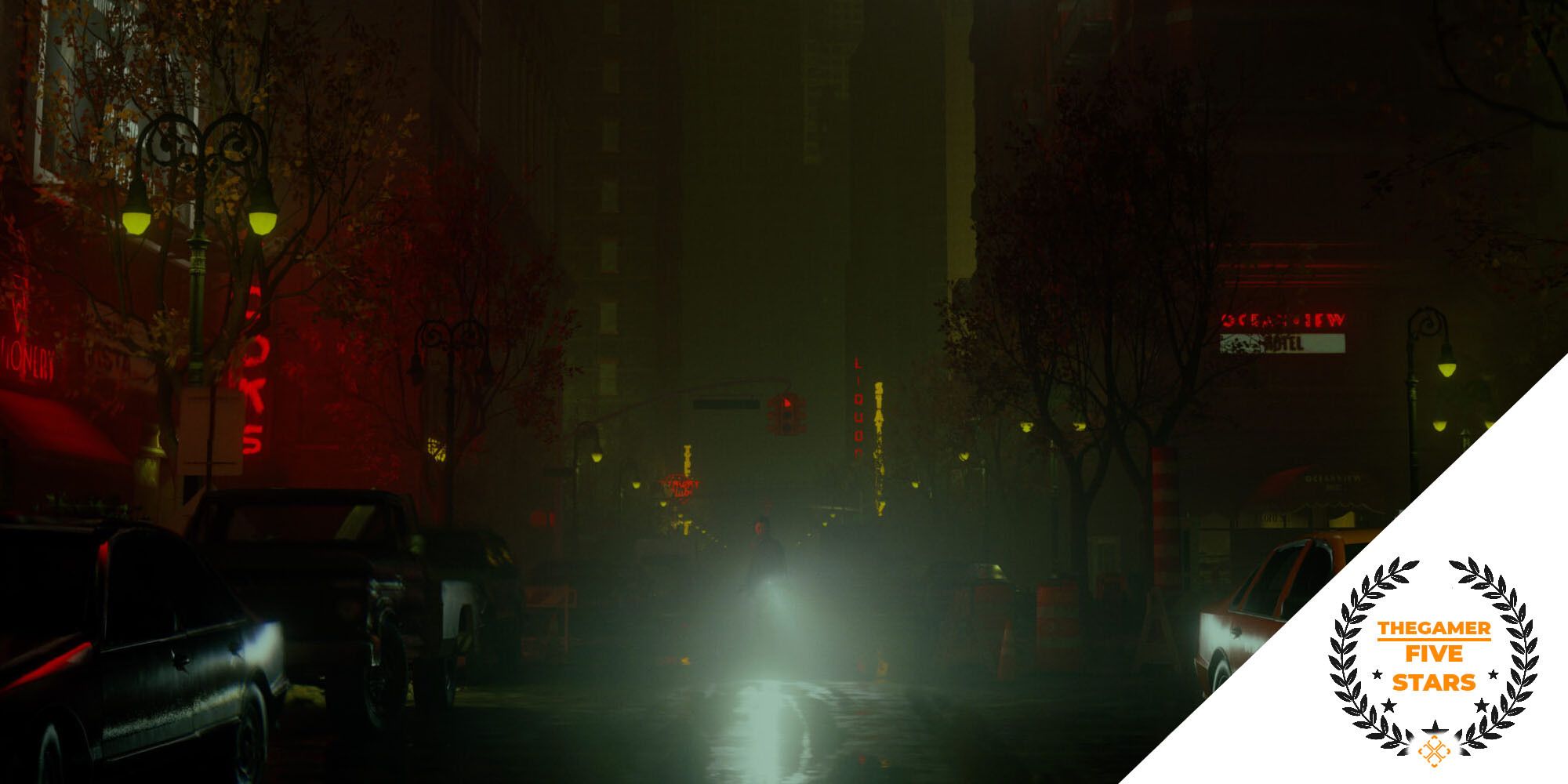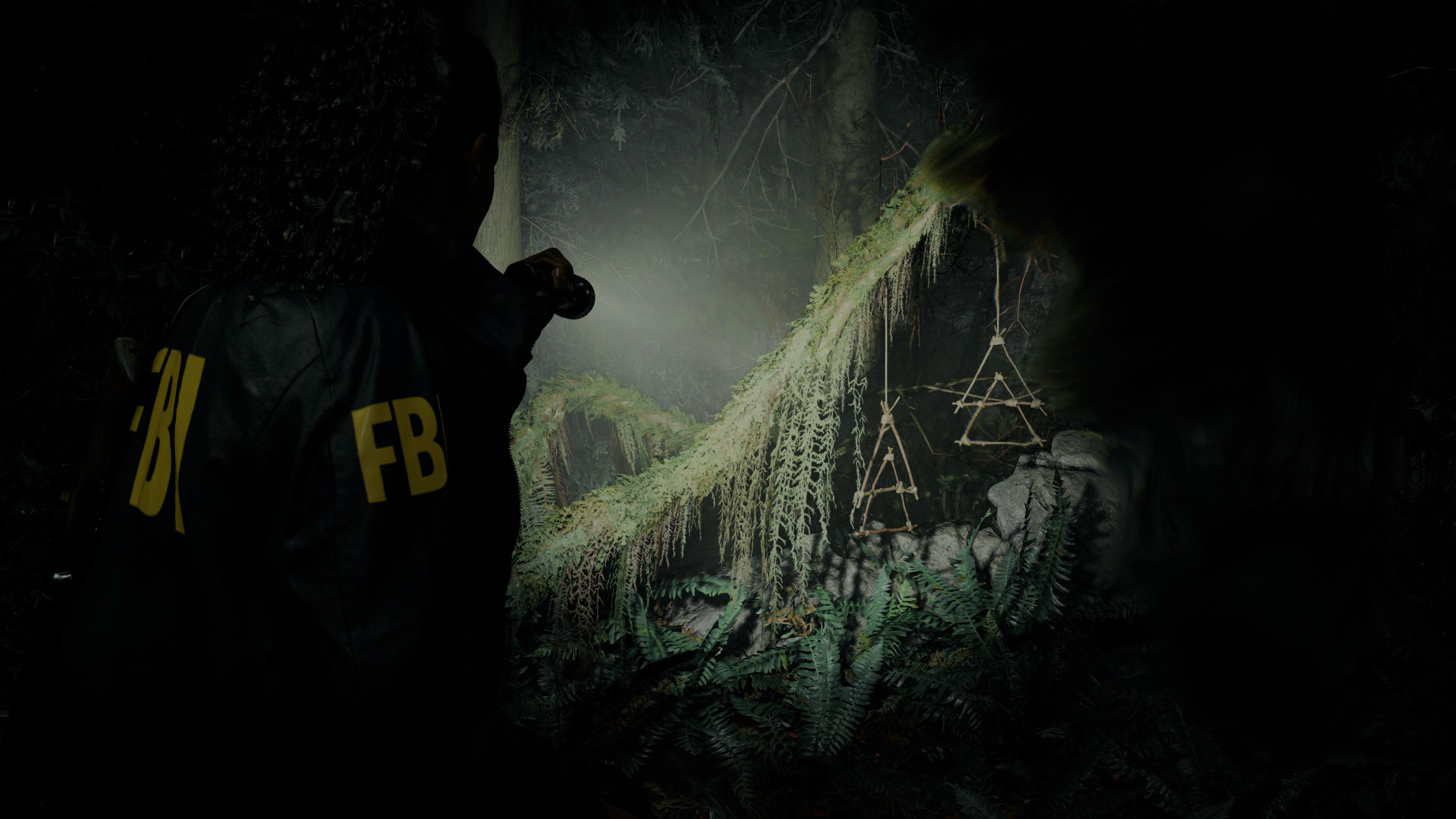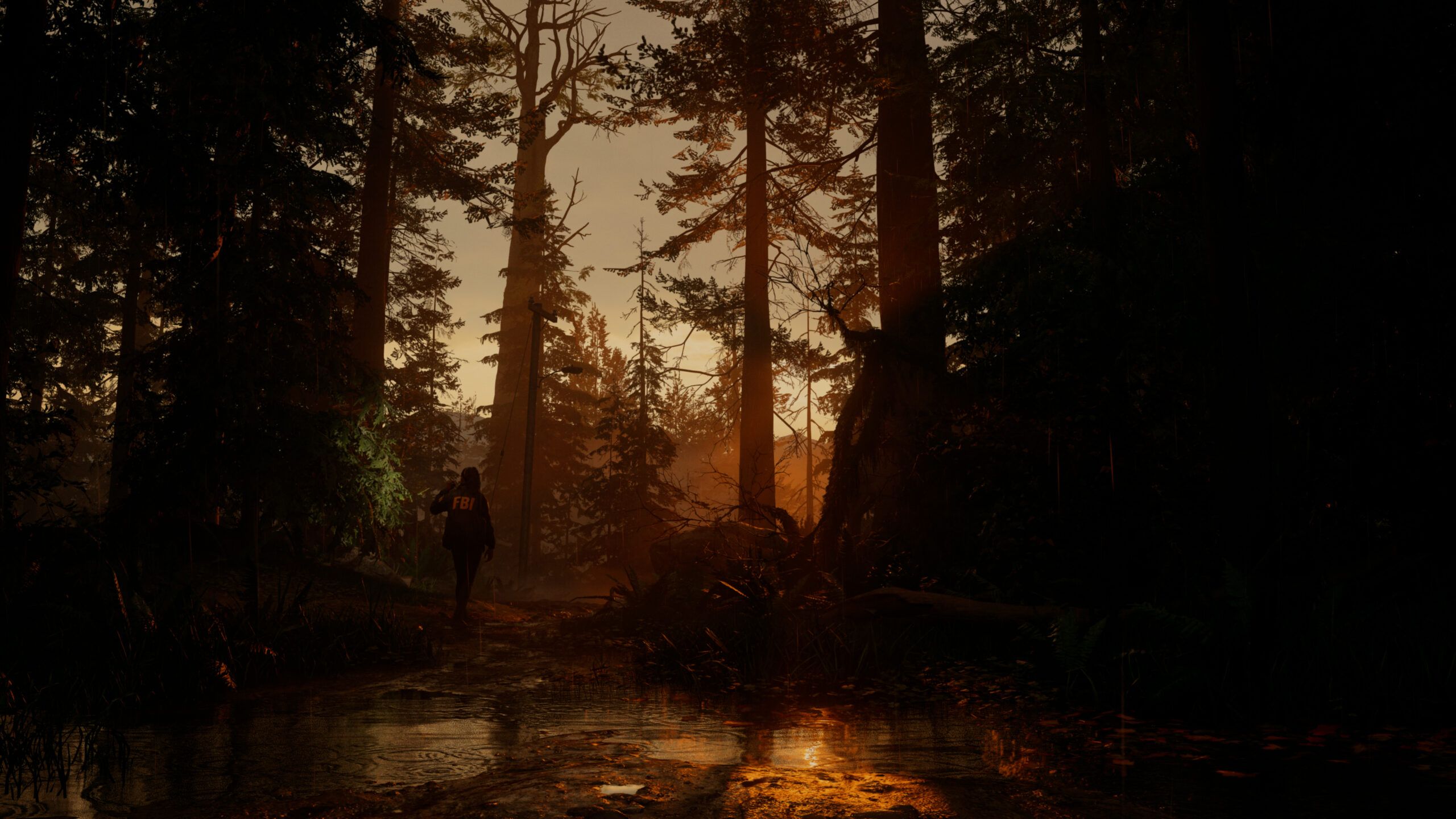Remedy Entertainment is a master of unease. Its games encourage us to question our reality, and to interrogate our surroundings as they shift in response to our curiosity. Its virtual worlds are crafted with an aura of the uncanny, thrusting us into a mindset of doubt as we sit and wait for the other shoe to drop. It’s only a matter of time until something goes wrong, whether I’m breaching the paranormal amidst The Oldest House in Control or meeting up with an old friend in Quantum Break, Remedy is ready to make me question everything at any moment. Alan Wake 2 perfects this craft.
Taking place 13 years after the last game, bestselling author Alan Wake is still trapped in The Dark Place, forced to relive a story of his own making again and again as it gradually morphs into something alien thanks to his evil alter ego, Scratch. Meanwhile, FBI Agent Saga Anderson has been summoned to the picturesque town of Bright Falls to investigate a ritual murder. This is all the setup I needed to be drawn into a supernatural caper filled with cults, family, deception, and flirtation with another world that, unless stopped for good, will swallow our own. A force from the shadows is rewriting reality as I walk through it, meaning I seldom feel safe even with a pistol in my hands and a flashlight to illuminate the darkness. This is the first time Remedy has flirted with a fully-fledged survival horror, and it’s one of the best I’ve ever played. It easily stands alongside the giants of the genre, and often surpasses them.
Alan Wake 2 is as much a sequel to Control as it is the 2010 original, immediately blending in familiar characters and jargon into its Twin Peaks-inspired setting. Everything feels oddly familiar, but also alien – Bright Fall’s citizens treat Saga like she’s a dear friend despite her not stepping foot in the town before. You feel like an unwilling participant in a secret play, given no choice but to merrily go along until the curtain is lifted.
Much of your time as Saga is spent talking with locals across the small towns of Bright Falls or Watery, before venturing down to the melancholic forests of Cauldron Lake or rusted abandonment of a nearby theme park. You’ll gather evidence and speak to citizens all while navigating gunfights with mysterious new enemies, using a mixture of flares, explosives, and too few bullets to ever feel like you’re a gun-toting juggernaut.
There are constant signs of life throughout, mostly in the form of twisted monsters who must be kept at bay by a mixture of torchlight and gunfire. Known as Taken, these creatures resemble citizens of Bright Falls but also spit out lines alluding to Saga and Alan, or a bleak muttering of their past lives that are now nothing more than fragments. Combat is fierce and challenging, with ammunition and similar resources scarce enough to always keep you on edge. It’s terrifying, and I’d often tense up whenever I had to face more than two Taken at once because I knew a single mistake could spell my death. Alan Wake 2 doesn’t splice in combat to keep things interesting, it does so because it’s necessary for our heroes’ survival. You’ll want to take the time to navigate environments in search of resources or extra puzzles, ducking into safe rooms lit with blinding lights the creatures outside aren’t able to stomach. You’ll view them as bastions of safety even across a world that isn’t all that large. It takes pride in the claustrophobic dread it instills within you.
Its brightest moments come from exploration, using your intuition to piece together what exactly is eating away at Bright Falls. Much of this is done from Saga’s Mind Place, an explorable office that can be instantaneously accessed with a press of the touch bar. Here you can find a case board featuring myriad plot points, sticky pads, and character portraits all held together with reams of red thread. Every major conspiracy in the game has its own case that you will expand upon with additional clues until it is solved. It felt absurdly satisfying to crack a case, or follow a trail of clues to a solution that previously had me stumped. Collectibles such as manuscript pages, television reels, and upgrades can also be accessed here, acting as a hub where safety remains ever fleeting. Alan Wake 2 is as much a hard-boiled detective thriller as it is a Lynchian horror where you are continually forced to peer into the unknown, and moment-to-moment gameplay does a stunning job at combining these thematic approaches no matter what you’re doing.
Alan Wake’s playable sections are a darker, more sinister affair, and after a certain point in the narrative you will be free to jump between the realities of Alan and Saga at will. You’ll need to piece together the plot’s disparate pieces yourself however, but this only reinforces how brilliantly inventive Remedy manages to be. Trapped inside the Dark Place, Alan finds himself hunted by an unknowable force that wants to taunt as much as hurt him, banishing him within an exaggerated vision of Manhattan cursed by a shower of eternal rainfall. Locations from his past frequently phase into existence as new missions are unlocked, and he gets closer and closer to breaching reality, like this supernatural place he played a part in creating is falling apart at the seams. He isn’t powerless though, and in his possession holds a fractured lamp that with the correct light source can shift and change surroundings into something new. This opens the door for some excellent puzzles, and are used sparingly enough to never outstay their welcome. I’ll use it to reveal a new doorway before descending into an underground train station, or gain access to hidden items that previously didn’t exist. You can’t transform everything though, and most of these moments are unfortunately scripted.
Alan Wake 2 is as much a hard-boiled detective thriller as it is a Lynchian horror where you are continually forced to peer into the unknown, and moment-to-moment gameplay does a stunning job at combining these thematic approaches.
As an author in a realm he has influence over, Alan can also retreat to the Writer’s Room, a form of purgatory where he is forced to scribe the same story over and over and over until he creates one that can pull him out of this hell. This manifests in gameplay in the form of stages where you will be presented with four distinct scenes, all of which can be transformed by changing what story was told within them. New enemies, puzzles, and collectibles might surface with the right combination, creating compelling brain-teasers that reinforce the horrific confusion Alan Wake 2 thrives on. Every new location is a shifting diorama of possibilities that we are invited to fiddle with, but only if we’re willing to deal with the bloodthirsty shadows emerging in our wake. The atmosphere is palpable, forcing me to tread carefully as I’m haunted by visions of future opponents and level design that, while mimicking our world, turns hotel lobbies and dank alleys into ghastly labyrinths that are a panicked joy to navigate. It isn’t uncommon to have some areas turned into a loop, refusing to change until you figure out exactly what holds it all together.
Saga might be waltzing about the real world, but that doesn’t make it any less unsettling. I can revisit past locations to solve nursery rhymes come to life locked down by the Federal Bureau of Control, or retrace my steps to find new clues amidst old haunts. I got lost a few times because I didn’t bother to use the map, but given how complicated Alan Wake 2 can be at times, it’s a miracle all of its different pieces fit together so seamlessly. Just when I’m convinced the unfolding mystery can’t become any more macabre or supernatural, a curveball is thrown that turns the entire adventure on its head. Not since Silent Hill 2 has a horror game enraptured me so completely. Remedy balances horror, camp, thriller, musical, and a list of genres so long it’s almost exhaustive, but each one is confident in its execution.
Remedy has always been seen to push boundaries, or experiment with different ideas using its own kooky melting pot of creative innovation, but never has it felt as accomplished as it is with Alan Wake 2. This feels like the game this developer has wanted to make for years, unrestrained in the best possible way as it goes hard on layered storytelling, flawed yet fascinating heroes and a series which for over a decade now has been harbouring untold potential. To see that ambition finally realised is a delight, and the end result is one of the best survival horror games I’ve ever played. It’s Remedy let loose, debuting a shared universe that is bound to continue changing the game for years to come.

Alan Wake 2
Reviewed On PS5
- Alan Wake and Saga Anderson are both excellent heroes
- Exhaustively inventive in its mechanics and narrative
- Terrifying, funny, and absurd in equal measure
- Performance can be ropey at times
- It can be easy to get lost in the early hours








